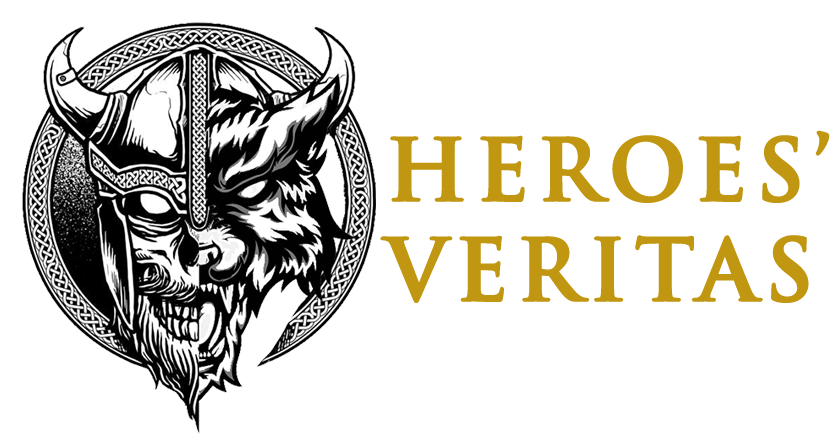It is 3am Sunday morning, the day of Easter. I have been here many times before, sleepless yet exhausted, but this evening is a bit different, as it typically is for me around this time of year. My namesake day lands quite close to Easter every year and I always find myself contemplating the rising, the rebirth, and the Spring growth. Easter often triggers me to remember I have made it once more around the Sun, since my birthday soon follows and I begin the evaluation of my life up to that point.
Now, before I continue, I want to make it known that I am not here to speak of Easter in the religious sense, merely the spirit of the story it encapsulates. Rebirth. Thinking of Easter, growing up in the Catholic home of my Grandmother, I was told the story of Jesus’s rising. Later I was told a similar, yet slightly different, version in the Christian church. It has always been an important story in my mind and has played heavily into how my life has come to be. Though admittedly, I have always read into this story a bit more tactically than those around me. While everyone looks to it as the symbol of God or Jesus’s power, their sacrifice, their mysticism and/or our salvation. I have always seen it from a more pragmatic point of view, definitely more so than those around me. What is this story trying to convey?
If we examine this story, not to offend or discuss the merits of religion, but merely the objectivity of the lesson, so much of this story can guide us in and out of our winter seasons. The sacrifice and the rising is the quintessential underdog story. It is the core concept behind Man’s need to answer the two burning questions, ‘Am I good enough? Do I have what it takes?”.
Without Struggle, there is no sacrifice. Without sacrifice, there is no battle to win. With no battle to win, there can be no true reward. We are measured, not by how well we stand in the sun, but how well we weather the storms. A knight in shining armor, has never had his mettle tested, show me a man without strife and I will show you a man without perspective, and fall down 6 times, get up 7.
This is one of the greatest lessons of the rebirth of spring. No matter how dark the winter, how cold, or how desolate – the sun will rise again and life will return to previously barren soil. No matter how dark life gets, you can pull yourself back to the light. It is not always easy, but it is always possible. Which brings me to Life’s fickle paradox, time.
One thing we all agree on is that once we shed our mortal coil – we leave this plain, whether we go up, down, middle, or not, is the debate, but we all understand Death as the ‘End of our Time’. So what is the paradox? Those who have a lot don’t understand how precious it is. While those who have little, understand the value, but can do nothing about it.
I have found that there are 3 main approaches to our time on earth, and most, if not all, fall into one of these approaches.
The “white rabbit” approach, ‘I’m Late, I’m Late’. Named after the rabbit in a waist coat of Alice in Wonderland. Acutely aware of Time’s slipping sands, the mere thought of Life’s endless forward procession leads to anxiety and rushing. These people are never able to be in the moment, for they are already too aware that it has passed to even realize where it had gone. They are too worried about ‘running out’ of time to focus long enough to maintain their sovereignty. This can be dangerous territory here, easy to feel hopeless and out of control. Time is your master.
The “wave” approach, like the waves moving in and out with the tide, these individuals see time as occurring TO them. They are not actively participating in any single moment. They are merely passengers unaware that time is present in any shape or form. I have seen many people happy in this approach. They are free from time’s constructs, so they have little expectations moving from one moment to the next. It is not common that a moment would be emotionally charged to weigh a heavy burden on their heart. The caveat is when these individuals hit a moment in time and feel a burning call to action. When this happens they are made abruptly aware of times sway and often times come to the end of their life regretful for what they failed to accomplish.
Finally, the ‘Neo’ approach. Simultaneously aware of time, but actively involved in time. These individuals have learned that they can be willing captives of the ebbs and flows of time, but can also focus to bend time to their will. Seamlessly flowing between states, slowing a moment down when enjoying time with others or on a project, then later speeding a moment up that perhaps they are suffering through, like cardio, or a bad argument. For these individuals the negatives in time carry little weight, while the positives abound. They are no longer the passive captive of time’s waves, nor are they dependent on the thundering sound of passing grains of sand to keep their tempo. They have all the time in the world, not because it is infinite, but because they understand it is in fact finite. They make efficient use of each moment, so that when it does come to a close, they may go through their collection of moments. Then, peacefully and gracefully say, “Yea…that was a good time.”








